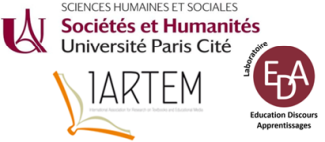Research problems:
Compound subjects are seen as innovative by many, but also as difficult, epistemically as well as didactically. In any case, they are a reality in many countries. An additional challenge are, in places, obviously missing close links between curriculum creation, teacher training, school practice, academic disciplines and educational publishing. In the context of the COMPOUNDS project (https://blogs.hu-berlin.de/compounds/; this project also covers curriculum and textbook content issues), funded 2022-2024 by the German Ministry for Education and Research (BMBF), we are focusing the educational material production side for compound subjects: what is the specific contribution of educational media publishers to compound subjects? We are a working group within COMPOUNDS, consisting of publishing studies researchers and educational publishing practicioners.
Since this is an area not covered by previous research specifically, we had to collect primary data concerning the role of educational publishers in the production of corresponding material – and (as it turned out) in the development and advancement of these subjects as such. The mindsets applied and production strategies followed (e.g. in the form of content reuse, particularly from textbooks for the corresponding base subjects) in these publishing houses were also of interest to us.
Using the evolving European (and beyond, including e.g. Canada / Quebec) network of COMPOUNDS, we were able to identify and address several educational publishers in different countries – and to systematically find out about what is interesting to us by distributing a questionnaire to them. The questions we asked included ones like “Did you as a publisher have a role in specifying these compound subjects or did you just react to the (new) curriculum´s and/or teacher´s demands ? Please specify.” or “Do you systematically reuse content from previous (basic subject) textbooks for your compound subjects textbooks? Please specify.”
The answers by the educational publishers we subjected to a systematic content analysis, with the aspects dwelled on above in the centre (role, content reuse, etc.). Moreover, we identified a number of interesting – i.e. typical as well as deviating (from the identified mainstream) – cases. Some of these cases we will present qualitatively in Paris, together with the quantitative results of the survey as a whole.
This research is meant to be a pilot for wider empirical research in the course of a large follow-up project. In short, the results of our research can be summarised as follows: 1) educational publishers have a more important role for compound subjects than could be systematically expected, since they e.g. respond to teachers´ questions that are not answered by the curricula; they do that implicitly with the help of the content of their educational materials, but also explicitly with the help of seminars, advice and sales conversations, etc. 2) Since in many countries compound subjects networks (of authors, teacher trainers, etc.) do not exist, educational publishers rely on the networks they had built around the basic subjects; outright content reuse is only one possible form of that.

 PDF version
PDF version
